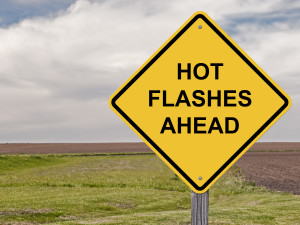By Iris Farrou
27 Mar, 2023
Lifestyle Tips, Menopause, Peri-Menopause, Peri-Menopause, Prevention, Queer Health, Reproductive health, Sexual health, Women's Health
Acute UTI, Aging and Painful Sex, Aging and UTIs, Am I going through menopause, Bladder Incontinence, Body Changes In Menopause, Easing the Symptoms of Menopause, Menopause, Pelvic Floor, Prevent urinary tract infection, Urinary Tract Infection, UTI

If you have a vagina, then you have possibly been warned about the dangers of Urinary Tract Infections (UTIs), and the ever-present danger that they may return and not leave you alone. Many women also report they get UTIs so often that they get used to the symptoms– so much so that they don’t realize they have an infection until it gets too bad. Because nobody likes more pain, or more health risks, let’s take a look at the three areas of the urinary tract that a UTI may affect, and the possible symptoms:
| Area |
Symptoms |
| Kidneys |
Nausea, vomiting, back/side pain, shaking and chills, high fever |
| Bladder |
Frequent and painful urination, blood in urine, pelvic pressure, lower belly discomfort |
| Urethra |
Unusual discharge, burning sensation during urination |
Did you know that UTIs are the most common bacterial infection in women over 65? Though young people certainly can suffer from a UTI, untreated UTIs in older women can lead to much more serious health issues, like kidney failure or sepsis. One reason for older women’s susceptibility to UTIs is the weakened muscles in the bladder and pelvic floor, causing incontinence or urinary retention. The longer the urine remains in the urinary tract, the higher the risk of bacterial multiplication.
Another reason why older women are at a higher risk for a UTI is because estrogen levels drop significantly after menopause. This can lead to an imbalance of good and bad bacteria in the vagina, heightening the risk of an infection. It is suggested that post menopausal women use vaginal estrogen creams, which can help support the presence of good bacteria. Drinking plenty of water and fluids, especially cranberry juice, can also help prevent infections.
No matter your age, to lessen the risk of a UTI you should also make sure you are wearing loose clothing, emptying your bladder often, wiping front to back, and always keep an eye out for possible symptoms if you have reason to be concerned. UTIs are usually treated with narrow-spectrum antibiotics, as those are more likely to be accepted by the body. In more advanced cases, UTI patients are hospitalized and receive IV antibiotics.
If you or a loved one use pads or adult diapers, you should make sure to change them often and clean the area well, pat dry, between uses. UTIs can be especially problematic for patients suffering from Alzheimer’s or dementia, as they often cannot communicate their needs or state their symptoms. In those cases, the UTI may escalate to the point where the affected person starts acting erratically, more confused than usual, and even more disoriented. If those symptoms worsen, it is definitely advisable to have elderly female patients be treated by a doctor immediately.
https://www.bannerhealth.com/healthcareblog/better-me/the-risk-of-utis-as-you-age
https://www.mayoclinic.org/diseases-conditions/urinary-tract-infection/symptoms-causes/syc-20353447
More
By Iris Farrou
07 Sep, 2022
Lifestyle Tips, Menopause, Peri-Menopause, Prevention, Queer Health, Reproductive health, Sexual health, Women's Health
Aging and Painful Sex, Body Changes In Menopause, Easing the Symptoms of Menopause, Lubricants, Lubrication, Painful Intercourse, Peri-Menopause Health, Preparing for Menopause, Sex-Positivity After Menopause, Sooth Vaginal Pain During Intercourse, treatments for vaginal dryness, Vaginal dryness
One of the most often talked about symptoms of menopause is vaginal dryness. It would be ideal if it only showed up when menopause started, but unfortunately it can start happening even a few years before menopause. Just as a bonus, women can also experience vaginal dryness after childbirth, while breast feeding, or even if they are taking certain allergy medicine or certain antidepressants.
years before menopause. Just as a bonus, women can also experience vaginal dryness after childbirth, while breast feeding, or even if they are taking certain allergy medicine or certain antidepressants.
Back to the hormonal factors, however, vaginal dryness begin hand in hand with vaginal atrophy. A truly scary word, though it simply means your body is not producing as much estrogen as before. Estrogen is responsible for the natural lubrication, elasticity, and thickness of the cervix: once estrogen production goes down, the natural lubrication of the vagina is no longer happening, and the vaginal walls can experience thinning, drying, and possible inflammations.
Lubrication
Basically, it all comes back to lubrication: since your body’s natural lubrication system retires at the age of menopause, you need to supplement vaginal lubrication via external (internal) means. Most often, especially because vaginal dryness can lead to pain during intercourse, women will turn towards vaginal lubricants. Though a great solution, it is but temporary. For something more long lasting, you may want to look into vaginal moisturizers. You can apply them every few days to moisturize and keep vaginal tissue healthy.
There is also the option to reinvigorate vaginal tissues. Science really does wonders… this can be
a low dose vaginal estrogen cream, tablet, or ring. Note that this can be prescribed in additional
to other hormonal supplements you may be taking. It is meant to specifically tackle vaginal
dryness, especially if it persists while you are on hormonal treatment post-menopause. You will
need to discuss this option with your doctors and take into consideration any other health issues
you may have faced, particularly breast cancer.
There is also the option of an oral medication, Ospemifene or Osphena, which is more geared
towards addressing vaginal pain during intercourse. It is a selective estrogen receptor modulator,
SERM, medication but women who have a high risk of breast cancer, or have faced breast
cancer, best not consider it as an option. For more details on what this medication can do for you,
consult with your doctor or medical professional.
Another technique to help you ease painful intercourse if you are post-menopausal is a nightly
vaginal suppository containing dehydroepiandrosterone (DHEA).
It’s also important to note that vaginal stimulation or even regular sexual activity, solo or with a
partner, can absolutely help post-menopausal women keep their vaginal tissues healthy. Above
all, remember this is a very natural response of your body to hormonal changes, there is nothing
to be ashamed about, and it is well within your rights to seek healthy treatments that work for
you and your body. You owe it to yourself, and though we can’t turn back the clock, we can
make sure we are living pain-free and comfortable lives within the new parameters our bodies
present to us.
More

When does it happen?
Menopause symptoms occur at the end of the body’s menstrual cycles, usually when women reach their 40s or 50s; perimenopause begins a few years before menopause. Some women may experience menopause as late as their 60s. The average age in the US is 51 and the most common reason is the natural biological decline of reproductive hormones. Menopausal age varies and procedures such as chemotherapy and/or radiation, hysterectomy, or primary ovarian insufficiency can lead to early menopause.
Perimenopause Symptoms
Experiencing the following, additionally to irregular periods, alerts you that your body is in perimenopause:
- Vaginal dryness and irritation
- Hot flashes and chills
- Night sweats
- Problems sleeping
- Mood changes
- Slowed metabolism and weight gain
- Thinning hair and dry skin
- Loss of breast fullness
- Thin bones
Period irregularity does not guarantee you are in menopause, so until you are sure do not stop using contraceptive methods. Your ovaries are still producing eggs, even though your hormone levels are changing.
Menopause
Leading up to menopause, you will experience changes in menstruation, with period irregularity that includes either heavier periods or periods that skip for a month or more than return regularly for a few months. Once you have gone 12 months without menstruating, your body has gone into menopause.
Treatment
There are different types of treatment available to ease menopausal symptoms.
Menopause hormone therapy (MHT) is one of the most common treatments, though it is not safe for all women. You should always consult your healthcare provider, and avoid MHT if:
- You think you are pregnant
- You have had certain types of cancer, blood clots, a stroke or heart attack
- You have liver disease or problems with vaginal bleeding
Non-hormone treatments approved by the FDA are also an option, especially when it comes to easing the symptoms of severe hot flashes and pain with sexual activity (dyspareunia).
Natural methods such as dietary supplements or over-the-counter natural hormone creams may be used to alleviate some menopausal symptoms.
Every treatment method has advantages and disadvantages, and there is no one-fits-all solution to dealing with menopause. Always consult your healthcare provider before pursuing treatment and be knowledgeable about potential risks.
After Menopause
Some of the symptoms may continue after menopause, such as vaginal dryness and changes in sex drive; seek methods that will help you protect your heart and prevent bone loss. Postmenopausal vaginal bleeding should not occur, and if it does it may be a sign of a medical issue that requires urgent attention.
More
 Menopause. The change. An uncertain time in a woman’s life when her body makes permanent, and unfamiliar changes. For the millions of women who go through menopause each year, the symptoms of this altering state can feel overwhelming, leading many women to dread the day that they realize menopause has arrived. If you are experiencing menopause now, or are anticipating the day when the first signs or symptoms appear, familiarize yourself with our tips for easing the symptoms of menopause so that when the change does occur, you can face it confidently and without distress.
Menopause. The change. An uncertain time in a woman’s life when her body makes permanent, and unfamiliar changes. For the millions of women who go through menopause each year, the symptoms of this altering state can feel overwhelming, leading many women to dread the day that they realize menopause has arrived. If you are experiencing menopause now, or are anticipating the day when the first signs or symptoms appear, familiarize yourself with our tips for easing the symptoms of menopause so that when the change does occur, you can face it confidently and without distress.
Symptoms of Menopause
The symptoms that women experience during menopause — while varied — are primarily caused by a single factor: hormone changes. While every woman’s experiences will be different, what follows is a list of the most common symptoms that women experience during menopause:
• Hot flashes — a sensation of heat all over the upper body and/or flushing of the face and neck.
• Vaginal dryness, which can lead to discomfort during sex.
• Irregular periods that come more or less frequently than experienced previously.
• Periods that last for more or fewer days than experienced previously.
• Periods that are noticeably heavier or lighter than experienced previously.
• Night sweats.
• Difficulty sleeping.
• Mood swings—crying more frequently, seemingly without reason.
• Urinary tract infections.
• Urinary incontinence.
• Disinterest in sex, or feeling more comfortable about sex.
• Forgetfulness/difficulty focusing.
• Feeling stiff or achy.
Easing the Symptoms of Menopause
If you are experiencing any of these symptoms, know that you don’t have to suffer. Much of the discomfort associated with this phase of life can be treated with simple lifestyle changes and at-home remedies. Follow these tips to help ease your symptoms.
To Treat Hot Flashes:
- Avoid triggers such as spicy foods, alcohol, stress, caffeine, and hot locations.
- Dress in layers.
- Make sure you have a fan conveniently located in your home or workplace.
- When you feel a hot flash coming on, take deep, slow breaths.
To Treat Vaginal Dryness:
- To ease discomfort during sex, use a water-based, over-the-counter vaginal lubricant.
- To assist general feelings of dryness, use an over-the-counter vaginal moisturizer.
To Treat Sleep-Related Issues:
- Remaining active during the day will help you feel restful at night. Do not exercise too close to bedtime however, as such physical activity may make you feel awake immediately following.
- Avoid large meals directly before bed, and do not consume caffeine after noon.
- Do not smoke directly before bed.
- Keep your bedroom cool.
- Avoid naps during the day.
- Try to wake up and go to bed at the same time every day.
To Treat Mood Swings:
- Stay active during the day, and try to get regular sleep at night.
- Work to manage the stress factors in your life.
- Talk to your doctor to determine if you are experiencing depression and could benefit from more focused depression treatment.
To Treat Memory Problems:
- Stay active during the day, and try to get regular sleep during the night.
- To Treat Urinary Incontinence:
- Talk to your OBGYN. There may be medicines, behavioral changes, or devices that may ease your symptoms.
Hormone Therapy:
- Menopausal hormone therapy (MHT) can be an effective treatment for several of the symptoms of menopause, including vaginal dryness, mood swings, hot flashes, and night sweats.
- Low-dose oral contraceptives may help to ease symptoms if you are still receiving your period.
Feeling overwhelmed? Don’t feel like menopause is beyond your control. Start by talking to your OBGYN. He/she can help you to address your specific symptoms and devise a treatment plan that will suit your needs and ease your discomfort.
More




